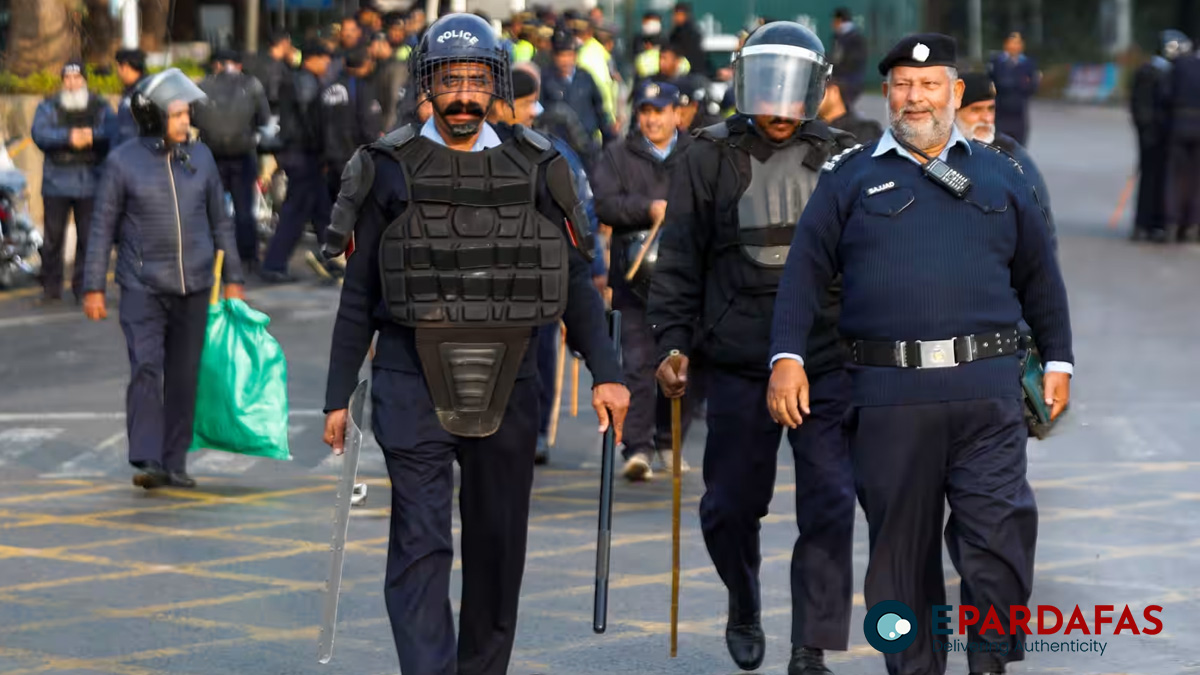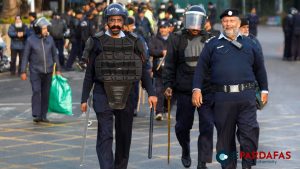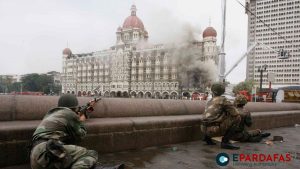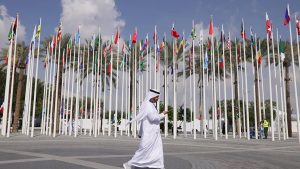
Tensions Rise in Pakistan as Protests and Sectarian Violence Escalate
Pakistan’s capital, Islamabad, was placed under strict security lockdown on Sunday ahead of planned protests by supporters of jailed former Prime Minister Imran Khan. The demonstrators, led by members of Khan’s Pakistan Tehreek-e-Insaf (PTI) party, are demanding his release and the resignation of the current government, alleging electoral fraud.
Authorities have blocked major highways leading to Islamabad, as well as key roads within the city, using shipping containers. Police and paramilitary forces in riot gear have been deployed across the capital, particularly near the parliament and key government installations in the heavily guarded “red zone.” Mobile phone services have been suspended, and WhatsApp messaging was restricted, according to global internet watchdog NetBlocks.
The Islamabad police issued a statement banning public gatherings under legal provisions.
PTI leader Ali Amin Gandapur, expected to lead a major convoy into the capital, called for demonstrators to assemble at “D-Chowk,” a significant protest site near parliament. “Khan has called on us to remain there till all our demands are met,” Gandapur said in a video message.
Khan, imprisoned since August 2023, faces numerous charges, including corruption and incitement to violence, all of which he and his party deny. His supporters argue the charges are politically motivated.
The previous PTI protest in Islamabad, in October, turned violent, leaving one police officer dead and dozens injured. Residents and businesses in the city have expressed frustration with the repeated disruptions. “These constant protests are destroying the economy and creating instability … we want the political leadership to sit together and resolve these matters,” said Muhammad Asif, a local resident.
Sectarian Violence in Kurram District Escalates
Meanwhile, sectarian clashes in Kurram district, Khyber Pakhtunkhwa province, have resulted in at least 82 deaths and 156 injuries since Thursday, local officials reported. The violence, which erupted after attacks on Shiite convoys, has seen heavy gunfights between Sunni and Shiite communities.
Kurram, which borders Afghanistan, has a history of sectarian strife due to its mixed Sunni-Shiite population. The ongoing violence prompted hundreds of families to flee the area, with mobile networks and traffic along the main highway remaining suspended.
A government delegation attempting to negotiate a ceasefire was met with gunfire on its arrival, though no casualties were reported. Provincial Law Minister Aftab Alam Afridi emphasized the priority of brokering a ceasefire before addressing the root causes of the conflict.
Earlier sectarian clashes in the region this year claimed dozens of lives, with recent violence adding to the grim toll. The Human Rights Commission of Pakistan reported that 79 people were killed in sectarian clashes between July and October.
The escalating unrest—both political and sectarian—has left Pakistan grappling with growing instability and security challenges.













Comments